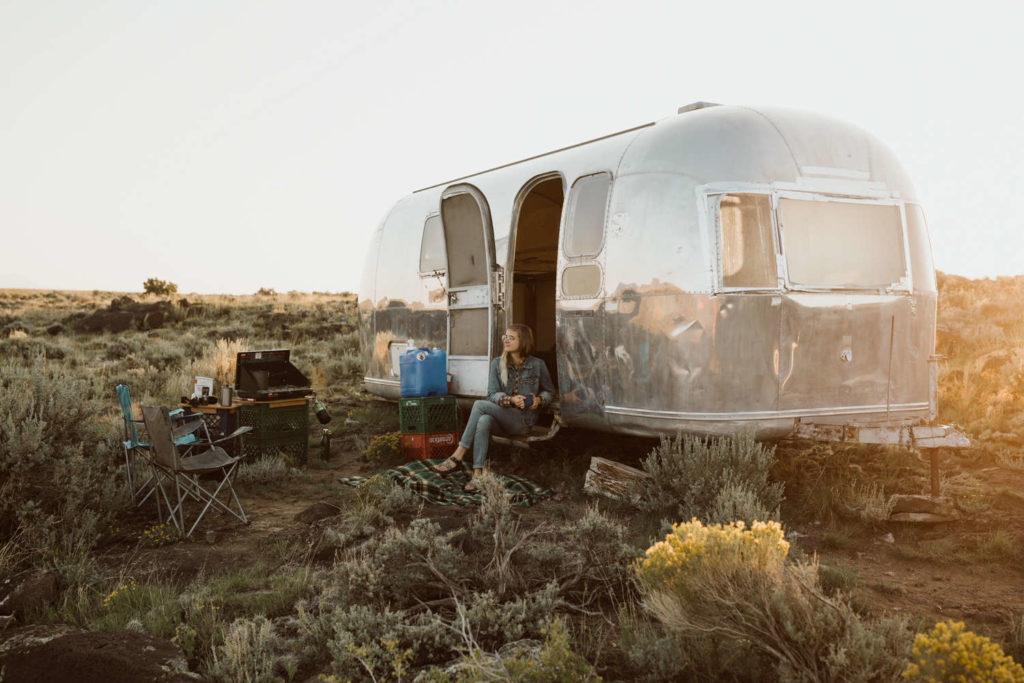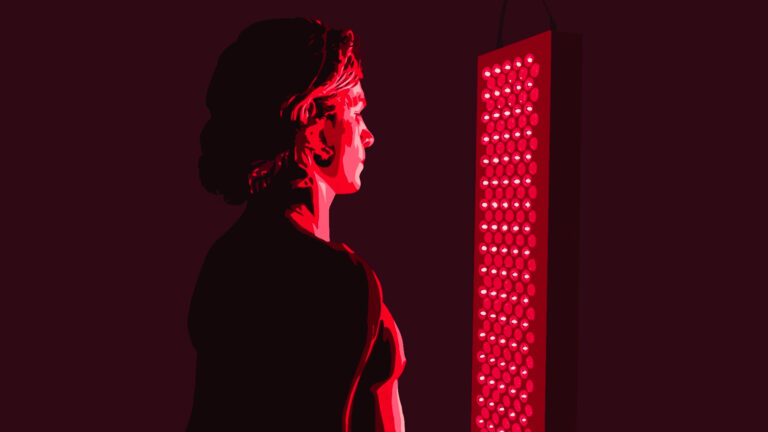While celebrity-backed wellness trends and high-tech fitness equipment dominate the headlines, simply spending more time outdoors is a low-cost, science-backed, and underrated way to improve well-being.
Call of the wild. Beyond the health benefits, answering the call of the wild fulfills our inherent sense of adventure. Surprisingly, despite the obvious overlap, outdoor recreation has remained largely separate from the broader wellness boom.
But now, younger generations are heading for the hills in record numbers. At the same time, increasing access to the great outdoors has become the mission of tech startups seeking to tap this demand. The result has given rise to a new customer cohort: the casual camper.
Why it matters: Combined, the convergence of wellness, adventure, and technology represents a massive opportunity worth exploring in greater detail.
The Outdoor Opportunity
- In 2018, 78.8M US households camped at least once.
- Between 2013 and 2019, investors have poured $722M into outdoor startups.
Happy campers. From retail to beer, millennials have become the scapegoat for “killing” slumping industries. But on the contrary, they’re actually the driving force behind a camping boom.
“Representing 38% of the US outdoor consumer population, Millennials spend more time outside and more money on outdoor products than the average outdoor consumer…”
– Outdoor Industry Association
In 2018, 78.8M US households camped at least once. And millennials accounted for 41% of folks roughing it — an increase of seven percentage points since 2014. Going further, new campers aren’t just younger, they’re more diverse too. Among first-time campers in 2018, 51% identify as nonwhite.
Right this way. Given the popularity of camping and the success of marketplaces like Airbnb, OpenTable, and ClassPass before them, a new generation of outdoor-focused platforms is making it easy to access adventure. Similarly, a growing number of tech-enabled tools and consumer brands are capitalizing on this trend.
- Camping/glamping: Hipcamp, Tentrr, AutoCamp
- RV rental: Outdoorsy, RVshare
- Mapping: AllTrails, Strava, onX
- Experiences: Airbnb, The Outbound Collective, Fixers
- Consumer brands: Yeti, Rumpl, Cotopaxi, Kinfield
- Hunting and fishing: Outdoor Access, GoWild, HuntStand
Granola capital. To fully grasp the opportunity at hand, consider these recent developments. Last summer, Hipcamp, a marketplace for “unique camping experience”, raised $25M from Andreessen Horowitz, bringing their total funding to $40.5M. Meanwhile, Getaway, a wellness hospitality company offering tiny cabin escapes, is backed by $40M in funding from investors including L Catterton and Starwood Capital Group. But AutoCamp has outpaced both Hipcamp and Getaway, raising $115M to expand its network of upscale Airstream campsites.
And accommodations only scratch the surface. Across every aspect of the outdoor economy, the race to reduce friction and improve access is on. While RV rental companies Outdoorsy and RVshare have raised $75M and $50M respectively, mapping and planning app AllTrails recently sold for $75M and onX, a startup creating interactive maps for hunters, landed $20M+ in funding.
Looking ahead. Aptly timed, the rise of the outdoor marketplace coincides with the desire to disconnect. As we highlighted in The Shifting Fitness Landscape, the pendulum is swinging from social media and screens to in-person, human interaction.
“If connected fitness is characterized by tech-enabled equipment and streaming content, disconnected fitness is defined by the desire to unplug.”
With an emphasis on like-minded communities and technology-free quality time, getting outside offers the perfect respite from modern times. This fact helps explain the uptick in fitness programming and lifestyle branding from rock climbing gyms, the Outdoor Voices x Merrell collaboration, and Kinfield’s millennial-branded bug spray. Put simply, the great outdoors is being co-opted by the wellness economy. Like boutique fitness-goers before them, those that steer into this trend will find a captive customer in the casual camper.
⌚️ Owning the Fitness Stack
Apple is expanding its reach in the fitness realm with a new initiative called Apple Watch Connected.
Now, Apple Watch wearers who attend partner facilities can view class schedules, easily track their workouts, make purchases, and earn rewards for working out. Launch partners include Basecamp Fitness, Orangetheory Fitness, YMCA, and Crunch Fitness.
As we noted in Issue No. 59: “From the home to the studio and the office to a hotel, integrated technology, connected fitness, and on-demand content are becoming the status quo. At a time when consumers have more options than ever, [facilities] are looking for a hook…” With that, Apple will have no problem onboarding more partner gyms.
Beyond perks. With rewards and discounts serving as a customer acquisition tool, this move signals Apple’s intention to own even more of the fitness stack — from payments to health data and potentially healthcare.
Takeaway: As part of the 2020 Fitt Insider Outlook, we highlighted the potential of a mega-brand like Google, Apple, or Amazon making a play to vertically integrate healthcare, rolling up components of both health and fitness. This new initiative makes that outcome seem even more likely, with Apple well-positioned to preside over the entire health and fitness stack, creating an interesting proposition if they were to acquire a Peloton or a Strava.
😅 Stuck in the Middle
For middle-tier gyms, it’s the best of times and the worst of times. In the US, a record number of consumers have a gym membership. And we’re spending trillions of dollars on our well-being. But operators like Town Sports International and 24 Hour Fitness aren’t thriving like competitors on the upper, luxury end or lower, value-side of the spectrum.
As Emile Courtney of S&P Global Ratings told Bloomberg, middle-tier operators “don’t have the same price advantage of a low-cost gym or the competitive advantage of a boutique fitness option.”
- Luxury operators like Equinox Holdings see their debt trade at 100 cents on the dollar.
- On the flipside, Town Sports and 24 Hour loans are sold at discounts of more than 20%.
By the numbers. Of note, Town Sports has a $194M loan due in November. Although the loan could be delayed four years as part of the Flywheel Sports acquisition, the company’s shares, which hit $14.75 in July 2018, now go for less than $3. Meanwhile, 24 Hour Fitness is trying to combat churn — the average monthly attrition rate is growing, up to 4.1% from 3.9% in Q3 of last year.
Go deeper: To remain relevant in the Peloton of ‘X’ era, “fitness providers will be forced to innovate on their offerings, experience, and value proposition.” Read the full report here.
📰 News & Notes
- Keto ramen is coming.
- Layoffs hit DNA testing company 23andMe.
- This take on Tracksmith (featured last week) is spot on.
- Sexual wellness startup Maude launched the “nightcap kit”.
- MINDBODY and F45 Training signed a new global agreement.
- Small Door, the One Medical for pets, opened its NYC location.
- Calm is hiring its first-ever creative director, aspires to be “Nike of the Mind”.
💰 Money Moves
- Cultivated meat company Memphis Meats landed $161M in Series B funding led by Softbank, Temasek, and Norwest Venture Partners.
- Healthy meal delivery service Thistle raised a $5.65M Series A round led by PowerPlant Ventures.
- NutriDrip, intravenous nutrition and hydration service known for its presence in Clean Market and backed by Equinox executives Jeffrey Weinhaus and Harvey Spevak, is reported to be raising its Series A funding round ahead of expanding in 2020.
- Spring Health, a mental health solution for employers, closed a $22M investment.
- WholyMe, makers of “natural relief” products to manage chronic pain, announced £500K in seed funding.
- Noquo Foods raised €3.25M in seed funding to develop plant-based cheese.
- Colgate acquired Hello, a premium oral care brand.
- Keurig Dr Pepper acquired caffeinated sparkling water maker LIMITLESS.
- Chopt Creative Salad Co. is buying Dos Toros Taqueria in a deal financed by L Catterton.






